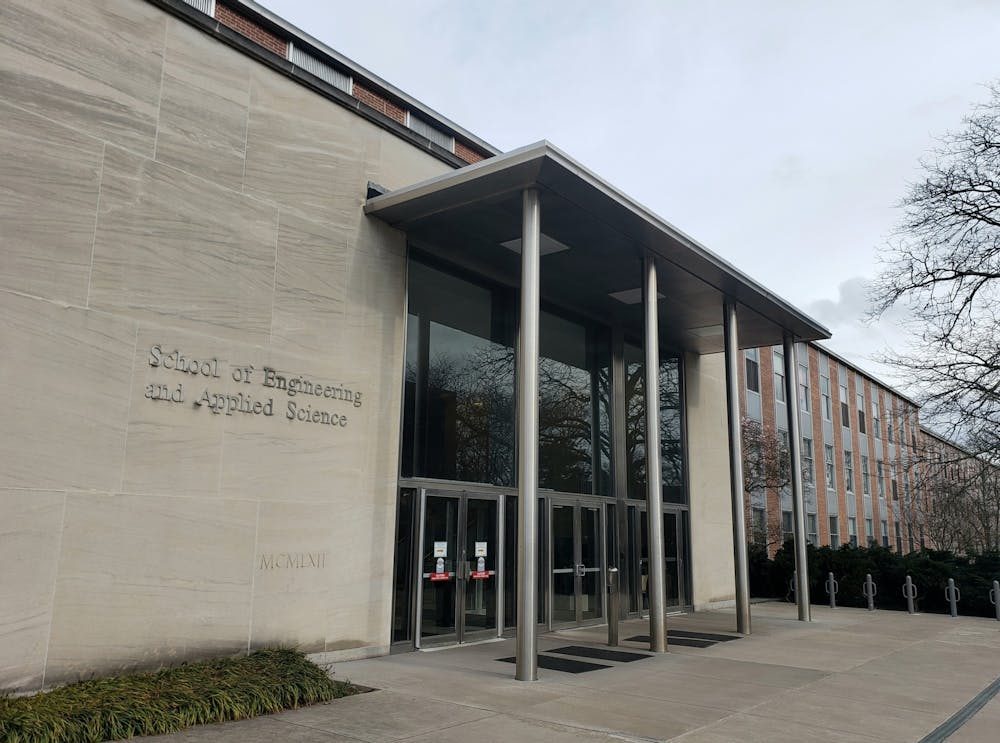As COVID-19 cases have surged past 320,000 and more than 9,300 people have died in the United States alone, the University’s Office of the Dean for Research has called for research proposals to address the pandemic’s scientific and socioeconomic facets.
Although all non-essential on-campus research was suspended as of March 21, a limited number of approved, campus-based proposals related to COVID-19 will be permitted to join the few essential projects that have continued operations.
“In recent days, many of you have reached out with requests for opportunities to use your knowledge, ideas and skills to assist in combating the COVID-19 pandemic,” wrote Pablo G. Debenedetti, Dean for Research and Class of 1950 Professor in Engineering and Applied Science, in a March 28 email to all faculty.
“In response to your admirable eagerness to help, I am pleased to announce a call for COVID-19 research proposals.”
Proposals may request up to $100,000 in funding over a period of one year, made possible through the Office of the Dean for Research. Principal investigators with approved projects will receive half of the requested funds at the onset. A peer review committee will review a progress report after three months before releasing the balance of the funds, contingent upon “whether adequate process has been made.”
“My hope is that the selected projects will have rapid and tangible impact in the fight against COVID-19, both on the biomedical, health-related, and fundamental science aspects, as well as on the policy, social, and economic aspects,” Debenedetti told The Daily Princetonian in an interview.
Debenedetti confirmed that there are currently “a small number” of ongoing essential projects currently taking place on campus — including a few COVID-19-related projects, in line with “several peer institutions” that have also supported on-campus COVID-19 research.
Alexander Ploss, associate professor of molecular biology and principal investigator of the Ploss Lab, is one of the researchers submitting proposals.

Normally, Ploss’s lab primarily studies hepatotropic human infectious diseases — those that involve viruses targeting the liver.
“Projects in the lab aim at understanding mechanisms of viral replication, determining why certain viruses that cause disease in humans don’t infect many other species, and translating our discoveries into devising experimental systems that will allow us to understand and dissect host responses to these diseases,” Ploss explained in an interview with the ‘Prince.’
Despite the differences in hepatotropic pathogens and SARS-CoV-2, the virus that causes COVID-19, Ploss is confident that several of the tools and reagents he has developed for studying other RNA viruses can be applied to SARS-CoV-2.
Ploss has submitted several proposals covering a variety of areas, from developing cell culture models with implications in drug discovery to testing a specific class of compounds with broad antiviral activity. He has also established serologic assays that can help detect SARS-CoV-2 infection and potential immunity in patients.

He hopes to work with researchers at Boston University, the Ragon Institute of Massachusetts General Hospital, the Massachusetts Institute of Technology, and Harvard University to test a vaccine for the novel coronavirus.
In addition, he plans on collaborating with the Princeton Plasma Physics Laboratory and Princeton Neuroscience Institute to test novel devices capable of rapidly and cost-effectively sterilizing surfaces that cannot usually withstand conventional sterilization techniques.
“It is quite remarkable to see how the global scientific community has come together to gain insights into the molecular biology of SARS-CoV-2 that will be essential for combating this disease,” Ploss said.
As an experimental infectious disease biologist, Ploss described the shutdown as challenging, but is nonetheless grateful to the Office of the Dean for Research for allowing him to maintain essential functions in his lab.
“Running experiments is essential for advancing efficiently our science,” Ploss explained. “While we cannot run any experiments currently, and only a couple of people can occasionally enter the lab, at least we can ensure that unique reagents, equipment, and resources are not compromised during the shutdown.”
Principal investigators applying for funding are required to indicate whether their projects will involve graduate students, postdocs, and staff members. They will also need to certify that all parties are “comfortable participating in on-campus research.”
“We very much hope that we can secure the resources to do our part in dealing with the COVID-19 situation. I consider myself extremely fortunate that I am working with a group of very smart trainees who [are] highly motivated to apply their talents to the present challenge,” Ploss wrote in an email statement to the ‘Prince.’
“Princeton University is a special place to do research,” he said. “With appropriate resources we will do everything we can to contribute [to] finding tangible solutions that can be readily deployed.”
Proposals will be reviewed by a faculty committee who will make funding recommendations.








